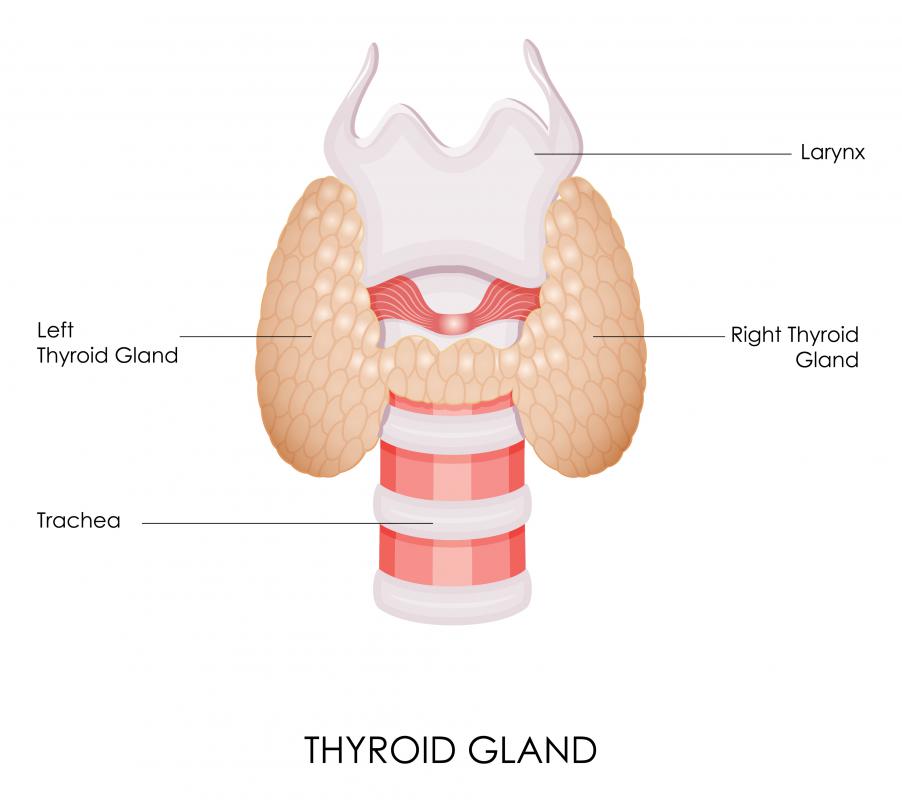At TheHealthBoard, we're committed to delivering accurate, trustworthy information. Our expert-authored content is rigorously fact-checked and sourced from credible authorities. Discover how we uphold the highest standards in providing you with reliable knowledge.
What is Macroglossia?
Macroglossia is an enlargement of the tongue. It can be associated with congenital conditions, in which case sometimes it's the mouth which is small and the tongue which is average-sized, and it can also develop in association with some medical conditions. People with macroglossia can experience a number of problems as a consequence of having an enlarged tongue, and this condition is usually treated by a maxillofacial surgeon.
Congenital hypothyroidism, Down syndrome, and a number of other genetic conditions can be accompanied by macroglossia. Enlarged tongue can also occur in people with amyloidosis, immunodeficiency, and some types of infections, among other things. Macroglossia is usually very easy to spot, because the oversized tongue is rather hard to miss.

On the less severe end of the spectrum, macroglossia can be a cosmetic problem. The enlarged tongue may also lead people to feel uncomfortable in social situations, which can impact self esteem and mental health. This condition can also cause problems with eating, breathing, swallowing, or sleeping. In some cases, these issues can be severe; people with macroglossia can be at risk of death due to the enlargement.

When a patient presents with macroglossia, steps are taken to determine the cause. Sometimes the cause is evident, as in cases where people have been diagnosed with a condition commonly linked with enlargement of the tongue. In cases where the cause is not obvious, or where the enlargement has been sudden, it is important to find out why it happened. Treating or managing the cause is critical for the patient's overall health, even if it does not necessarily resolve the tongue issue.

The primary macroglossia treatment is surgery. A surgeon can bring the tongue down to a more reasonable size so that it fits comfortably in the patient's mouth. The tongue is a relatively rapid healing part of the body, so patients usually recover quickly from macroglossia surgery. They may be required to eat a liquid diet during the early healing phases, and they will need to observe strict oral hygiene until the tongue is totally healed to ensure that they do not develop infections.

Even if the problem is just cosmetic, pursuing treatment can still be important. People who feel uncomfortable or awkward because of cosmetic issues tend to experience a decreased quality of life, and they may feel happier and more confident if these issues are addressed. Sometimes it's hard to realize the impact of a cosmetic issue on one's life until it has been resolved and self confidence and mood improve.
AS FEATURED ON:
AS FEATURED ON:















Discussion Comments
My six month old great grand-daughter has a rather large tongue, and a large share of the time it is out of her mouth, and she drools. Consequently, she's still taking nothing but formula, as her mother says she can't swallow real food. She's very normal sized, however.
I've been told that the pediatrician said she'll "grow in to it". Does this make sense? I'm basically an "outsider" and don't even dare mention it. What to do? Concerned great-grandmother.
Post your comments